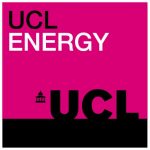Economics and Policy of Energy and the Environment | UCL
This degree programme is designed to provide a broad understanding of environmental and resource economics; modelling methods; environmental measurement, assessment and law; the political economy of energy and climate change.
How does the programme provide content to ensure students achieve an understanding of a reasonably diverse set of perspectives on understanding economies?
You will gain a firm grounding across all areas that are vital to the understanding and analysis of environment-energy-economy interactions. Studying in an interdisciplinary, collaborative learning environment, you will learn, at both an introductory and advanced level, about: Environmental policy and law Economics of the environment and natural resources Issues and challenges of global energy use, including climate change Fields of the energy system and econometric modelling Roles that innovation, business, people and society play in the energy system The principal disciplinary lens remains economics, including ecological, evolutionary and institutional economics, and political economy.
How does the programme ensure students understand the interaction between economic and ecological systems?
The MSc in Economics and Policy of Energy and the Environment (EPEE) is a 180-credit programme. You will attend lectures, engage in interactive seminars and benefit from presentations from visiting speakers drawn from a range of businesses and other organisations. You will also be able to attend the wide-ranging seminar series organised by the UCL Energy Institute and other Institutes contributing to the MSc.
How does the programme ensure students understand how to critically explore real-world evidence, both qualitative and quantitative?
This is a multi-disciplinary programme, including contributions from Law, Political science, Management Science, Social psychology, Sociology, Engineering, Natural sciences. MSc EPEE is also characterised by a mix of qualitative and quantitative methods, as you would expect in an applied programme focusing on policy for energy & the environment. Real-world evidence is discussed during both lectures and seminars, thanks to our guest-speakers and academics involved in public debates around our fields of interest.
What pedagogical approaches does the programme use to ensure that students examine the historical context, assumptions and values in all economic thinking?
The applied nature of the topics is investigated holistically, with a mix of economic thinking coming from environmental and natural resource economics, but also ecological, evolutionary and institutional economics, and political economy. Our teaching team is also trained by UCL Arena, and we intend to make teaching an inclusive experience, both from a practical and curricula-related perspective.
How does the department ensure that the teaching culture and capacity to deliver economic pluralism are continually improving?
Our team of academics represents a great mix of diverse backgrounds, and our teaching and research are all focusing on ecologically-conscious topics (we are based in the Institute of Sustainable Resources, and Energy Institute). The central topics of this programme are by definition both reflective and real-world based, and thanks to our research-led teaching approach there is a continual improvement of the contents.
Country:
United Kingdom
University:
University College London
Course name:
Economics and Policy of Energy and the Environment MSc
Department/school:
The Bartlett School of Environment, Energy and Resources
Course level:
Taught Masters
Course language:
English

 all programmes
all programmes